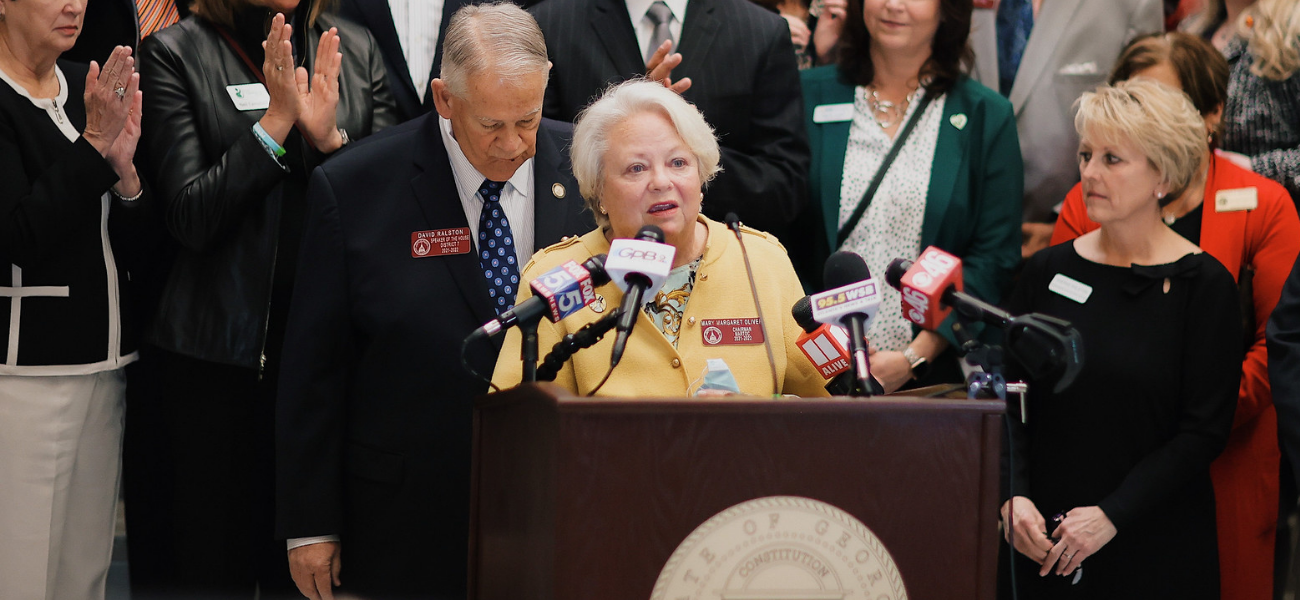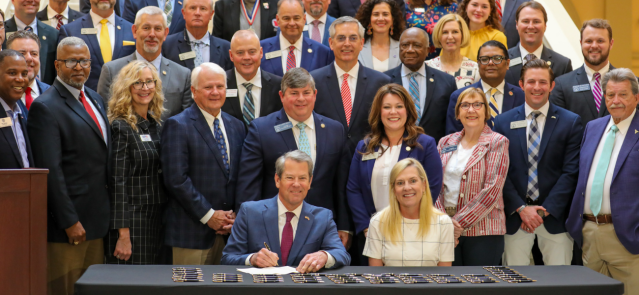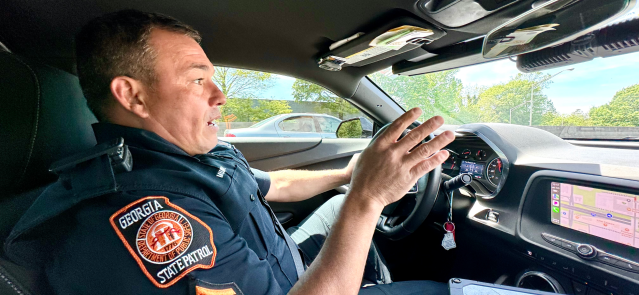Stay ahead of the curve as a political insider with deep policy analysis, daily briefings and policy-shaping tools.
Request a DemoMeet Mary Margaret Oliver, attorney and longtime Georgia lawmaker

State Rep. Mary Margaret Oliver speaks to the p...
- Playmaker: Mary Margaret Oliver
- Role: Georgia House of Representatives member
- Tenure: January 2003 to present
Read this story for free.
Create AccountRead this story for free
By submitting your information, you agree to the Terms of Service and acknowledge our Privacy Policy.
Kemp signs bills on education, health care, taxes
Gov. Brian Kemp signed a slew of bills over the past week or so, including the private school voucher bill long sought by Republicans and a bill that will ease regulations over the construction and expansion of medical facilities in rural areas. His bill-signing events were clustered into themes: education, health care, military members, human …
Incumbent candidates for local, federal races likely to be no-shows at this weekend’s primary debates
ATLANTA — One of Georgia’s prominent media organizations is pleading with incumbent state and congressional candidates to participate in its primary election debates slated for Sunday.
For the first time in The Atlanta Press Club’s 30-year debate history, incumbents facing challengers in the May 21 primary have either declined or not yet committed to participating in the organization’s well-known debate series. The possible no-shows include candidates in four Congressional races as well as the Georgia Supreme Court, and the Fulton County District Attorney races.
“This is the first time that we’ve had so many [incumbents] not participate,” debate organizer Lauri Strauss told State Affairs. Strauss declined to speculate why candidates aren’t participating.
Hoping to encourage more participation, the organization issued the following statement:
“The Atlanta Press Club believes it is the responsibility of people running for public office to answer questions from their local media that will help inform voters before they cast their ballots. If a candidate is running for public office, the candidate should be willing to participate in the democratic process, which includes attending debates and fielding questions from journalists and opponents.”
Candidates have until Friday to RSVP.
Strauss said candidates who fail to appear will be represented on stage by an empty podium during the debate.
District Attorney Fani Willis has declined to participate and Democratic U.S. Reps. Lucy McBath and David Scott have yet to RSVP. Strauss said the organization is still in talks with Georgia Supreme Court Justice Andrew Pinson’s staff about his appearance in the debate.
Willis, declined earlier this week to participate, citing constraints around talking about sensitive cases like the criminal prosecution of former President Donald Trump.
McBath currently represents the 7th Congressional District and is now running in the newly drawn 6th Congressional District against two Democratic challengers, Jerica Richardson and Mandisha Thomas. McBath declined to participate in the press club’s general election debate in 2022, forcing her Republican challenger Mark Gonsalves to debate with an empty podium. McBath won with 61% of the vote.
The debates will air live on April 28 on GPB.org, on The Atlanta Press Club’s Facebook page (www.fb.com/TheAtlantaPressClub). It will be rebroadcast in early May on WABE.org.
| Race | Tape and Livestream Sun. April 28 |
GPB-TV Broadcast | WABE Broadcast |
| Congressional District 6 Democrats | 10:00 a.m. | April 29 at 7:00 p.m. | May 1 at 4:30 p.m. |
| Congressional District 13 Democrats | 11:15 a.m. | April 28 at 4:00 p.m. | May 1 at 5 p.m. |
| Congressional District 3 Republicans | 1:00 p.m. | April 28 at 5:00 p.m. | May 2 at 3:30 p.m. |
| Congressional District 2 Republicans | 3:00 p.m. | April 29 at 5:00 p.m. | |
| Georgia Supreme Court | 4:45 p.m. | May 2 at 4:30 p.m. | |
| DeKalb County CEO | 5:45 p.m. | May 2 at 5:15 p.m. | |
| Fulton County District Attorney | 6:45 p.m. | May 1 at 4 p.m. |
Have questions or comments? Contact Jill Jordan Sieder on X @journalistajill or at [email protected] and Tammy Joyner on X @lvjoyner or at [email protected].
And subscribe to State Affairs so you do not miss an update.
X @StateAffairsGA
Instagram@StateAffairsGA
Facebook @StateAffairsGA
LinkedIn @StateAffairs
‘It is nothing short of insane:’ Bill to criminalize squatting signed by governor
ATLANTA — Today Gov. Brian Kemp signed legislation criminalizing squatting, the illegal practice of entering and residing on someone else’s property without their consent. The Georgia Squatter Reform Act makes squatting a misdemeanor criminal offense, punishable by up to a year in jail, a $1,000 fine, or both. It also speeds up the timeline to …
State troopers are stretched to fight drugs and curb highway deaths
ATLANTA — When Cpl. Anthony Munoz straps on his bullet-proof vest each day and pulls out of the Department of Public Safety headquarters in Atlanta, Munoz never knows how his shift will unfold. What is for certain is that the traffic — of cars, criminals and contraband — is constant. And what is also true …




